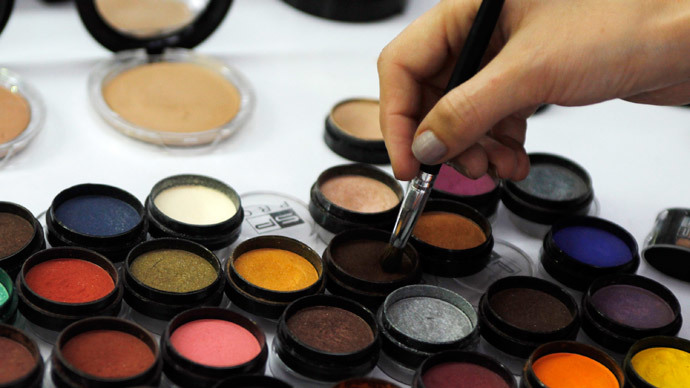Toxic trade: Rat droppings & urine contained in dangerous fake cosmetics sold online

The rapid growth in counterfeit cosmetic trading online is putting people’s lives at risk, police warn, as new laboratory tests confirm the artificial products contain rat droppings, human urine and arsenic.
The shocking tests reveal artificial cosmetics such as mascara, eyeliner, lip gloss and foundation contain toxic levels of chemicals and other harmful substances such as mercury and lead.
The chemicals in question could put pregnant women and their unborn babies at risk, experts suggest, as some of them contain cancer-causing compounds.
The hazardous compounds contained in the bogus cosmetics can also cause users to develop allergic reactions, swelling, rashes, burns and even lead to death.
Warning on fake make-up tainted by CYANIDE and other dangerous chemicals: Counterfeit versions of leading brands are being cooked up ...
— Mac Cosmetics Info (@Mac__Cosmetics) May 18, 2015
Don't buy fake cosmetics and electrical beauty guys! Never worth the risk! Buy cheap, you buy twice!
— Stacey Oakes (@PixiwooHQ) May 18, 2015
Nearly £90 million is spent annually on fake cosmetic goods online by consumers looking for luxury products at bargain bin prices.
The rising popularity of online shopping has made it harder for consumers to spot fake products, leaving many buyers unaware of the unpleasant chemicals inside them and the scarring effects they can have on the skin.
When purchasing cosmetics online, consumers are unable to look, feel or try a product beforehand, so checking authenticity is virtually impossible.
Many vulnerable consumers are also unaware of the unhygienic environments that these counterfeit products are produced in, police say.
In an effort to tackle the illicit trade, City of London Police has launched a “Wake Up- don’t fake up!” campaign to highlight the dangers.
The campaign aims to educate online consumers on the fake cosmetics industry and the dangers it poses.
Beauty Blogger, Megan House, told RT that online consumers should always “trust their gut instinct” and try and figure out when “something’s not right.”
House advises online consumers to “read reviews of the product to ensure it is trustworthy” before buying.
READ MORE: Leap of faith: Girl jumps into garbage chute to retrieve makeup
READ MORE: Counterfeit cosmetics: turning beauties into beasts
However, she also said buying cosmetics in stores is a safer alternative as “high-end beauty counters will offer you samples.”
“Beauty blogs are a great way of finding out the real truth on these products,” she added.
Another Beauty Blogger, Milly Youngman, told RT the trend for fake cosmetics is “frightening.”
Youngman says it’s “incredibly hard” to distinguish fake products from real products as the minor signs that indicate cosmetics are fake are “barely noticeable.”
Online retailers such as Amazon and eBay needs to “take a more proactive and tougher stance on these fake cosmetics,” she added.
“I’d like to see legislation that completely outlaws the selling of these products.”
Detective Superintendent Maria Woodall from the Police Intellectual Property Crime Unit (PIPCU) told the Guardian: “Beauty products are meant to enhance your features. However, the fakes can, in fact, do quite the opposite.”
The counterfeit products not only have a negative effect on your health, they can damage your wallet too, Woodhall said.
“We have had victims who have bought fake items online only to discover later that the criminals behind the site have used their payment details to make further purchases,” she added.
In 2014, an eBay seller from Britain was fined £25,000 and convicted of selling fake and unsafe cosmetic products.
Deborah Hamber of Exmouth received a four-month suspended prison sentence plus 150 hours of community service after being prosecuted by Devon and Somerset Trading Standards Service.











